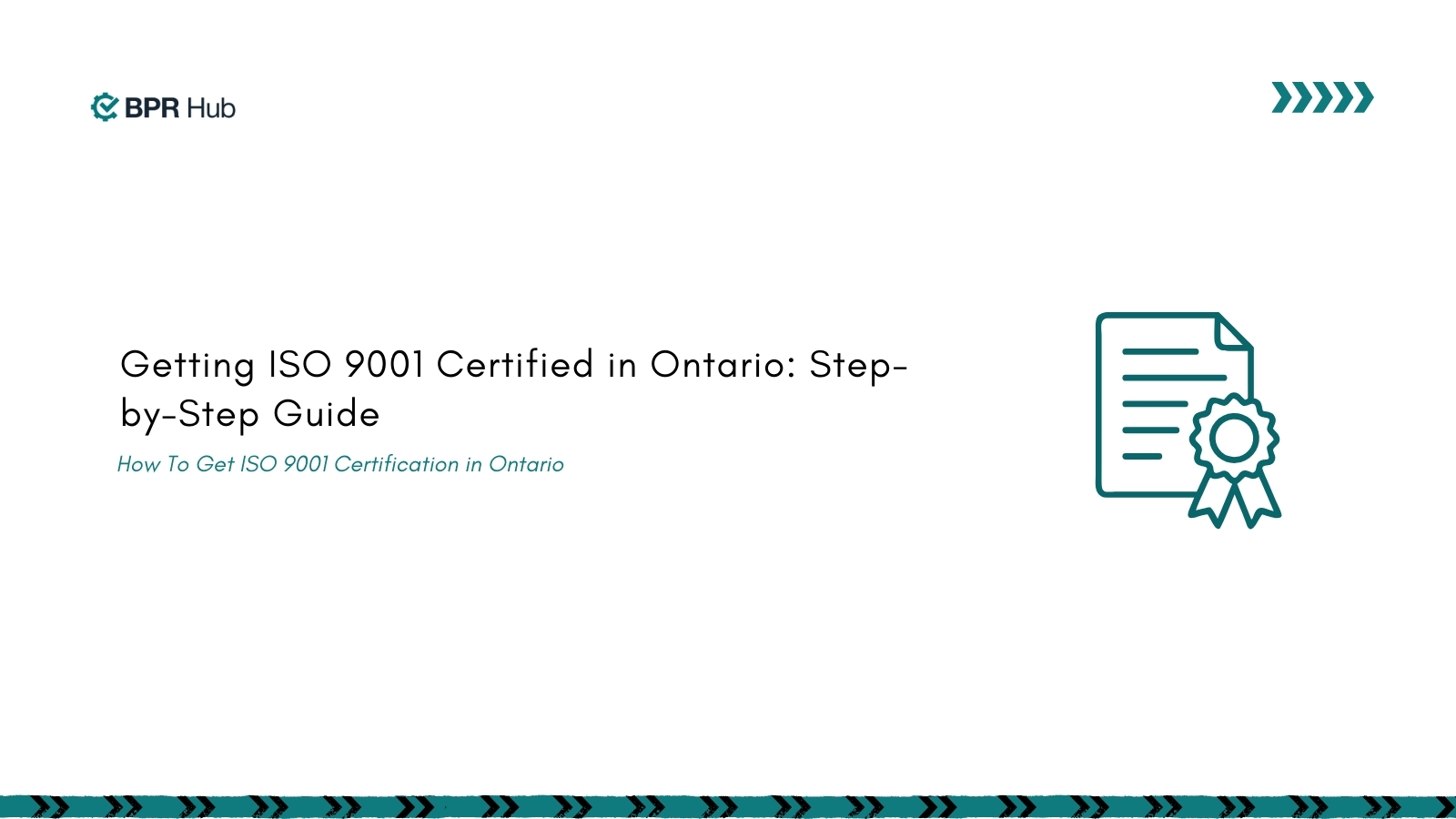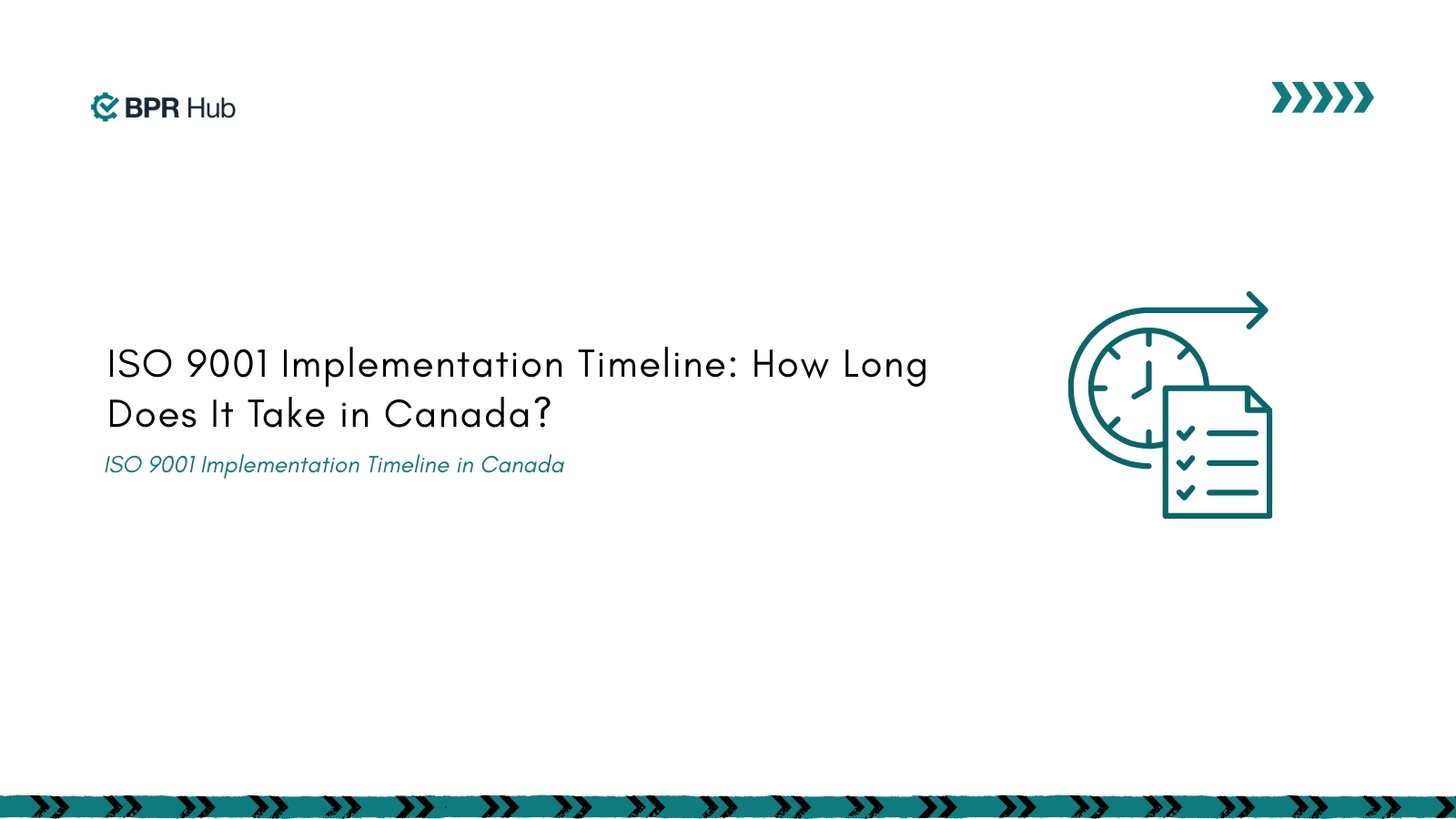New York businesses face increasing pressure to demonstrate quality excellence in today's competitive market. ISO 9001 certification in New York has become essential for manufacturers seeking to expand into new markets, satisfy customer requirements, and establish credible quality management systems. Over one million organizations worldwide hold ISO 9001 certification, making it one of the most widely adopted management systems globally, with New York companies representing a significant portion of certified organizations in the United States.
ISO certification in New York provides manufacturers with systematic approaches to quality management that reduce costs, improve efficiency, and enhance customer satisfaction. This comprehensive guide explores the benefits, costs, and step-by-step process for achieving ISO 9001 certification in New York's dynamic manufacturing landscape, including insights from BPRHub's quality management expertise.
What is ISO 9001 Certification?
ISO 9001 certification represents the world's most recognized ISO standard for quality management systems. This internationally accepted framework establishes systematic approaches to managing quality processes, ensuring consistent product delivery, and achieving customer satisfaction across all organizational levels.
The ISO 9001 requirements focus on seven quality management principles that drive organizational excellence: customer focus, leadership, engagement of people, process approach, improvement, evidence-based decision making, and relationship management. These ISO 9001 principles create foundations for sustainable business growth while ensuring regulatory compliance.
ISO 9001 certified organizations demonstrate their commitment to quality through documented procedures, systematic monitoring, and continuous improvement processes. The standard applies to any organization regardless of size, industry, or geographic location, making it particularly valuable for New York's diverse manufacturing sector.
Why ISO 9001 Certification Matters for Businesses in New York
New York's manufacturing landscape demands exceptional quality standards due to the state's strategic position in global supply chains and strict regulatory requirements. ISO certification in New York enables manufacturers to compete effectively in both domestic and international markets while meeting increasingly sophisticated customer expectations.
The certification provides third-party validation of quality management capabilities, which becomes crucial when bidding for government contracts or working with large corporations that require supplier ISO 9001 certification. Many Fortune 500 companies mandate ISO 9001-certified suppliers, creating competitive advantages for certified organizations.
New York's proximity to major ports and international trade routes amplifies the importance of quality management systems that satisfy global standards. ISO 9001 certification facilitates international trade by providing universally recognized quality credentials that reduce customer due diligence requirements.
Ready to take your quality management to the next level? Contact BPRHub today to start your ISO 9001 certification journey in New York.
📍 Book a Demo
📧 hello@bprhub.com
Key Benefits of ISO 9001 Certification in New York
Improved Customer Trust and Satisfaction
ISO 9001 certification establishes systematic approaches to understanding and meeting customer requirements. The standard's customer focus principle ensures that organizations consistently deliver products and services that satisfy customer expectations while addressing changing market needs.
Certified organizations implement formal customer feedback systems, complaint handling procedures, and satisfaction monitoring that demonstrate commitment to customer excellence. These processes build trust with New York's discerning customer base while providing competitive differentiation in crowded markets.
The certification provides objective evidence of quality management capabilities that customers can verify independently. This transparency reduces customer risk perception while accelerating sales cycles for complex manufacturing products.
Greater Efficiency and Cost Savings
ISO 9001 requirements drive operational efficiency through systematic process optimization and waste elimination. Organizations implementing the standard typically experience reduced rework, fewer customer complaints, and improved resource utilization that directly impacts profitability.
According to ISO's comprehensive analysis of 42 scientific studies, certified organizations achieve enhanced financial performance primarily through increased sales and improved operational efficiency. These improvements result from better process control, reduced defects, and enhanced supplier management practices.
The standard's emphasis on preventive action and risk-based thinking helps organizations avoid costly quality issues before they impact customers. This proactive approach proves particularly valuable in New York's high-stakes manufacturing environment, where quality failures can have significant financial consequences.
Competitive Advantage in Local and Global Markets
ISO 9001 certification in New York provides immediate competitive advantages in procurement processes where quality credentials influence supplier selection. Many large organizations use ISO 9001 certification as a minimum qualification requirement for vendor approval.
The certification opens doors to international markets where quality management system credentials are essential for market entry. European, Asian, and other international customers often require ISO 9001-certified suppliers, making the certification a prerequisite for global expansion.
New York manufacturers gain credibility advantages when competing against uncertified competitors, particularly in industries where quality and reliability are primary purchasing criteria. The certification demonstrates organizational maturity and commitment to excellence that resonates with sophisticated buyers.
Stronger Business Reputation and Credibility
ISO 9001 certification enhances organizational reputation through association with internationally recognized quality standards. The certification provides third-party validation of quality management capabilities that stakeholders can verify independently.
Media coverage of quality achievements, award opportunities, and industry recognition often accompany ISO 9001 certification, providing valuable marketing benefits. These reputation enhancements prove particularly valuable for New York businesses competing in national and international markets.
The certification demonstrates organizational commitment to continuous improvement and customer satisfaction that attracts top talent and business partners. This reputation enhancement creates positive feedback loops that support long-term business growth.
What is the Cost of ISO 9001 Certification in New York?
Factors That Influence ISO 9001 Certification Cost
ISO 9001 certification costs vary significantly based on organizational size, complexity, existing quality systems maturity, and chosen certification body. Organizations should expect comprehensive implementation and certification investments that align with their specific business requirements and scope.
Key cost factors include consultant fees, internal resource allocation, training requirements, documentation development, and certification body audit fees. Organizations with existing quality management systems typically experience lower implementation costs due to reduced development requirements.
The certification timeline also influences costs, with accelerated implementations requiring additional consultant support and internal resources. Most organizations complete ISO 9001 certification within 6-12 months, depending on organizational readiness and resource commitment.
Typical Price Range for Small, Medium, and Large Companies
According to industry certification cost analysis, small manufacturers (under 10 employees) typically invest $3,000-$7,000 for complete ISO 9001 certification, including consultant support, training, and certification fees. These organizations benefit from streamlined implementations that focus on essential quality management elements.
Medium-sized companies (50-250 employees) should budget $15,000-$25,000 for comprehensive certification projects. These organizations require more extensive documentation, training, and change management support due to increased complexity and stakeholder diversity.
Large manufacturers (over 250 employees) may invest $25,000-$50,000 or more for ISO 9001 certification, particularly if implementing across multiple locations or complex product lines. These projects require significant project management, training, and system integration efforts.
Annual surveillance audit costs typically range from $800-$1,500, depending on organizational size and certification body selection. These ongoing costs maintain certification validity while providing continuous improvement opportunities through external assessment.
Step-by-Step Process to Get ISO 9001 Certified in New York

Step 1: Develop Your Quality Management System (QMS)
Quality management system development begins with a comprehensive gap analysis comparing current practices against ISO 9001 requirements. This assessment identifies implementation priorities while establishing realistic project timelines and resource requirements.
Organizations must develop documented procedures addressing all applicable ISO 9001 requirements, including document control, management review, internal audit, and corrective action processes. The documentation should reflect actual organizational practices while satisfying standard requirements.
Risk assessment and opportunity identification represent critical QMS development components that align with ISO 9001 principles. Organizations must establish systematic approaches to identifying, assessing, and managing risks that could impact the achievement of quality objectives.
Step 2: Implement and Train Your Team
Successful implementation requires comprehensive training programs that ensure all personnel understand their roles within the quality management system. Training should address both ISO 9001 requirements and specific organizational procedures developed during QMS design.
Management commitment demonstration proves crucial for implementation success, requiring visible leadership support and adequate resource allocation. Leaders must champion quality management principles while modeling behaviors that support a continuous improvement culture.
Process implementation should occur systematically with adequate pilot testing and refinement before full deployment. Organizations should expect initial adjustment periods as personnel adapt to new procedures and quality management approaches.
Step 3: Internal Audit and Gap Analysis
Internal audit programs provide a systematic assessment of QMS effectiveness while identifying improvement opportunities before external certification audits. Organizations must train internal auditors in ISO 9001 requirements and audit techniques to ensure objective assessments.
Gap analysis during internal audits reveals remaining implementation requirements while highlighting areas requiring additional attention. These assessments should occur at least 2-3 months before certification audits to allow adequate time for corrective actions.
Management review processes evaluate internal audit results while making strategic decisions about quality management system effectiveness. These reviews demonstrate management commitment while ensuring continuous improvement momentum.
Step 4: Select a Certification Body and Get Audited
Certification body selection significantly impacts audit experience and ongoing certification maintenance. Organizations should evaluate certification body reputation, industry expertise, and geographic coverage when making selection decisions.
The certification audit occurs in two stages: documentation review and implementation assessment. Stage 1 audits evaluate QMS documentation completeness while Stage 2 audits assess implementation effectiveness and compliance with ISO 9001 requirements.
Successful audit completion results in ISO 9001 certification valid for three years, with annual surveillance audits maintaining certification status. Organizations receive certificates and logos that can be used for marketing and business development purposes.
Don’t let competitors outpace you. Partner with BPRHub’s expert consultants to implement ISO 9001 efficiently

Common Questions About ISO 9001 Certification Cost and Benefits
New York manufacturers frequently question the ISO 9001 certification return on investment, particularly given upfront implementation costs. Research demonstrates that certified organizations consistently outperform non-certified competitors through improved operational efficiency, enhanced customer satisfaction, and expanded market access opportunities.
Implementation timeline concerns reflect resource allocation challenges that BPRHub addresses through flexible project management approaches outlined in our ISO 9001 implementation guides. Our consultants work within organizational constraints while maintaining project momentum that achieves certification objectives efficiently.
Ongoing maintenance requirements represent long-term commitments that organizations must understand before beginning certification projects. Annual surveillance audits, management reviews, and continuous improvement activities require dedicated resources but provide ongoing business value through systematic quality enhancement as detailed in our management review processes.
Is ISO 9001 Certification Worth It for New York Businesses?
ISO 9001 certification in New York delivers measurable business value that justifies implementation investments for manufacturers committed to quality excellence. According to the International Organization for Standardization's analysis, certified organizations demonstrate enhanced financial performance through improved operational efficiency and increased sales opportunities.
New York's competitive manufacturing environment rewards organizations that demonstrate quality management capabilities through internationally recognized credentials. ISO 9001 certification provides these credentials while building internal capabilities that improve operational performance across all business functions.
BPRHub's comprehensive approach to ISO 9001 certification ensures that New York manufacturers achieve certification efficiently while building quality management systems that drive long-term success. Our proven methodology, expert consultants, and ongoing support create foundations for sustainable quality excellence that support business growth objectives.
Choosing the Right ISO 9001 Consultant in New York
BPRHub stands as New York's premier ISO 9001 certification consultant, providing comprehensive implementation support that transforms compliance requirements into competitive advantages. Our expert team combines deep ISO standard knowledge with practical manufacturing experience to deliver results-driven certification projects.
Our Unified Compliance Framework integrates ISO 9001 requirements with other regulatory standards, reducing duplicate workflows while ensuring comprehensive compliance coverage. This approach proves particularly valuable for New York manufacturers managing multiple compliance obligations simultaneously.
BPRHub's proven methodology includes detailed gap analysis, customized documentation development, comprehensive training programs, and ongoing support that ensures sustainable certification maintenance. Our clients achieve ISO 9001 certification faster while building quality management capabilities that drive long-term business success.
Streamline compliance and boost efficiency now. Schedule your free ISO 9001 consultation with BPRHub
📍 Book a Demo
📧 hello@bprhub.com
Key Takeaways
→ ISO 9001 certification in New York provides competitive advantages essential for manufacturers seeking to expand markets and satisfy sophisticated customer requirements
→ Implementation costs range from $15,000-$75,000, depending on organizational size, with documented ROI averaging 8-12% revenue increases within three years
→ ISO 9001 requirements drive operational efficiency through systematic process optimization, typically generating 15-20% cost savings within two years of implementation
→ The certification process involves four critical steps: QMS development, implementation and training, internal audit, and certification body assessment
→ BPRHub's specialized consulting approach integrates ISO 9001 certification with other compliance requirements through unified frameworks that reduce duplicate workflows
→ ISO 9001 certified organizations in New York gain immediate access to global markets where quality management credentials are essential for supplier approval
FAQ
How long does ISO 9001 certification take in New York?
ISO 9001 certification typically requires 6-12 months for complete implementation, depending on organizational size and existing quality system maturity. Small manufacturers may achieve certification in 4-6 months with dedicated resources, while larger organizations with complex operations may require 12-18 months. BPRHub's streamlined approach accelerates certification timelines through proven methodologies detailed in our ISO 9001 audit preparation guide.
What are the ongoing costs of maintaining ISO 9001 certification?
Annual surveillance audits cost $800-$1,500, depending on organizational size and certification body selection. Additional ongoing costs include internal audit resources, management review activities, and potential corrective action implementations. Most organizations budget 10-15% of initial certification costs annually for maintenance activities that ensure continued compliance with ISO 9001 requirements, as outlined in our quality record retention procedures.
Can small New York manufacturers benefit from ISO 9001 certification?
Small manufacturers gain significant competitive advantages from ISO 9001 certification, particularly when competing for contracts with larger organizations requiring certified suppliers. The systematic approach to quality management often reveals operational improvements that generate cost savings exceeding certification investments. BPRHub provides scalable implementation approaches designed specifically for smaller organizations with limited resources, as detailed in our job description guidance.
What industries in New York require ISO 9001 certification?
While no industries legally mandate ISO 9001 certification, aerospace, automotive, medical device, and government contracting sectors frequently require certified suppliers. Many Fortune 500 companies specify ISO 9001-certified vendors in procurement requirements, making certification essential for supplier qualification. The certification provides universal quality credentials valuable across all manufacturing sectors, as explored in our certification types overview.
How does ISO 9001 certification impact insurance and liability costs?
ISO 9001-certified organizations often qualify for reduced liability insurance premiums due to demonstrated risk management capabilities and systematic quality controls. Insurance providers recognize that certified organizations have lower claim frequencies related to product defects and quality issues. Some insurers offer 5-15% premium reductions for certified organizations with documented quality management systems that include proper traceability and identification procedures.
What happens if an organization fails the initial ISO 9001 certification audit?
Certification audit failures typically result from inadequate implementation rather than documentation issues, requiring corrective actions before re-audit scheduling. Organizations have opportunities to address non-conformities within specified timeframes without restarting the entire certification process. BPRHub's pre-audit assessments minimize failure risks through comprehensive readiness evaluations and corrective action support based on our comprehensive audit checklist approach.
Get insights that help you minimize risks and maximize profits.
Dive deeper into manufacturing compliance with our free resources.
We get it, compliance can get tough.
Here are some additional resources to help.
We get it, compliance can get tough. Here are some additional resources to help.
Get updates in your inbox

.svg)
%20(1).svg)





%20(1).svg)

.avif)

